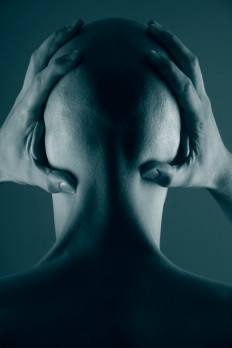 So what did Buddha have to say about our modern experience? Our fundamental problem is our crowning achievement. We have the potential for a radical, exciting freedom; yet, at the same time, we fear the responsibility. We vacillate from ecstasy and fear, openness and disappointment, feeling full of possibilities, and at the same time, recognize profound limitations. We feel that we should be enjoying a full life of meaning, while constantly experiencing a sense of anxiety and impermanence. We are choosing between the extremes of cynicism and fundamentalism, worry and authority.
So what did Buddha have to say about our modern experience? Our fundamental problem is our crowning achievement. We have the potential for a radical, exciting freedom; yet, at the same time, we fear the responsibility. We vacillate from ecstasy and fear, openness and disappointment, feeling full of possibilities, and at the same time, recognize profound limitations. We feel that we should be enjoying a full life of meaning, while constantly experiencing a sense of anxiety and impermanence. We are choosing between the extremes of cynicism and fundamentalism, worry and authority.
The Buddha recognized our human potential for radical freedom, while at the same time, pointed out the psychological process that grounded and conditioned that process. We have the potential for infinite freedom in each moment of experience–only realized in the context of possibilities–which are available to our imagination based on past choices. The present choices, in turn, determine the future construct in which we experience ourselves. We each determine our experiential content based on our current choices.
The current malaise is exasperated by our lack of awareness of the choices we currently have and a sense of consequences and responsibilities that result from the choices we make, consciously or unconsciously. We seem lost in the overwhelming intensity of sense experiences and the multitasking that overwhelms our conscious awareness, which is the foundation and seat of all our fluidity of experience. Without stopping the input and flow long enough to seize the conscious awareness–the source of meaningful interpretation of experience–we become lost in an ongoing flow that seems to be determined by forces beyond our conscious control.
The Buddha pointed out that the source of all our anxiety and dissatisfaction is the constant movement within this awareness. We are constantly reaching out and projecting needs and desires on the objects of sensations, thoughts and emotions that will never ultimately satisfy our human awareness. The fundamental problem pointed out by the Buddha was that since all senses, thought, emotions and external conditions are changing, our experience of any attachment to those changes would cause a feeling of loss, lack, yearning and unhappiness.
The primary door to what lies beyond this flux is the fundamental sense of awareness and consciousness from which one can observe the flux. Of course, that takes some discipline of mind. One has to quiet the flux to realize the awareness that lies as its psychological source, and not, in turn, place this fundamental awareness in the service of a new impulsive desire or identity. Since this awareness lies at the base of all consciousness, many people have had moments of quiet, concentrated awareness. It turns out that the more difficult problem has been to not quickly turn this openness toward a new object of desire, driven by impulse and habit. The first flush of freedom gives us a sense of possibility, but that has led most into an even greater freedom of impulsiveness. Overcoming of the repression of the deeper habits opens us up to the drives of even more powerful habits of mind.
This dynamic lies at the heart of our current situation. We have freed ourselves from the authoritarianism and indoctrination that have repressed our essential human empowerment and awareness, only to find ourselves confused and “at sea” in an ocean of emotion and impulsive drives that lie beneath the surface of our consciousness. To gain true freedom, we must be patient and not act on these habits of mind. There is a much greater freedom of mind on the primordial side of these psychological forces.
